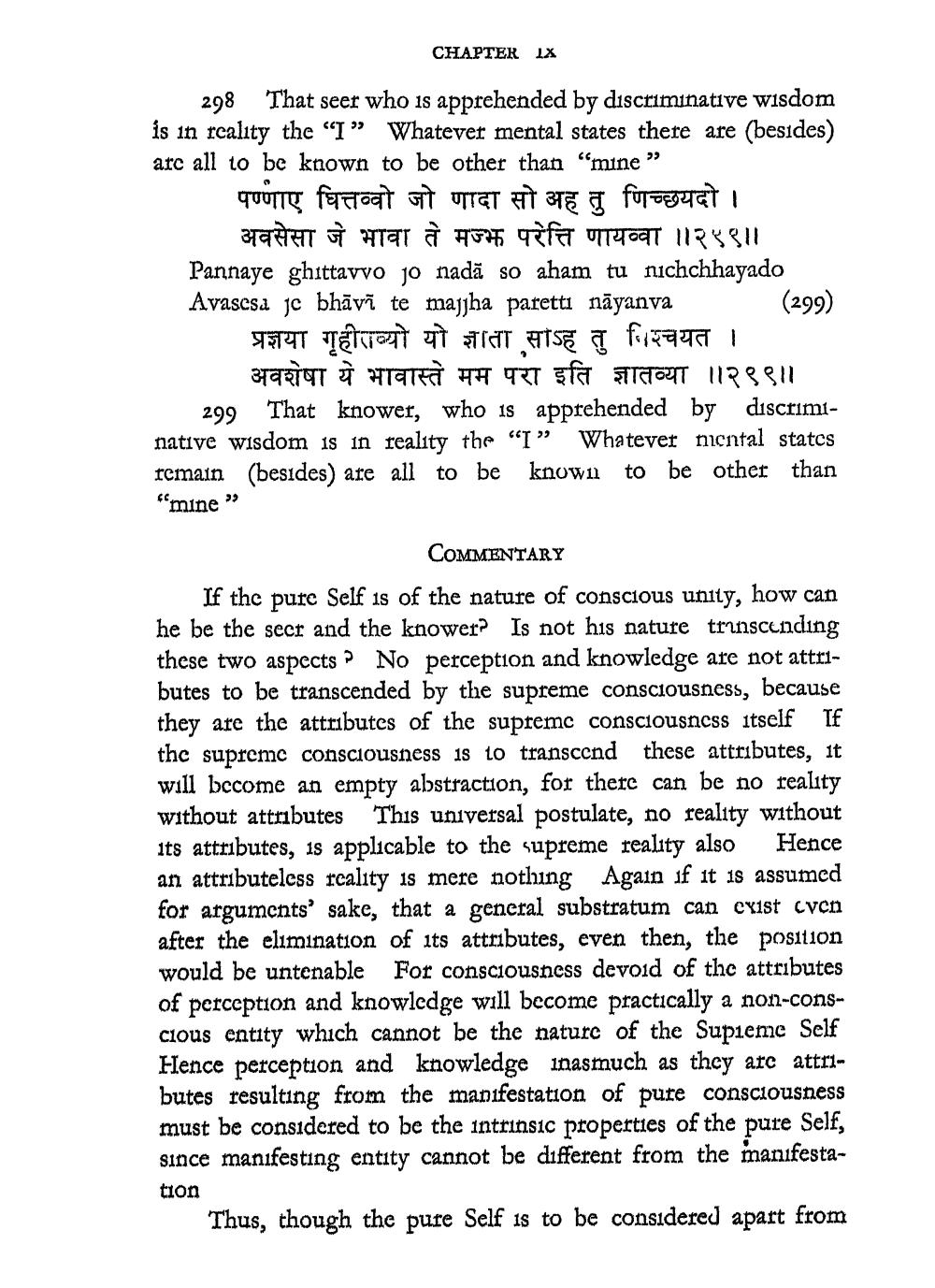________________
CHAPTER IX
298 That seer who is apprehended by discriminative wisdom is in reality the "I" Whatever mental states there are (besides) arc all to be known to be other than "mine "
पण्णा घित्तव्वो जो णादा सो अह तु णिच्छयदो ।
अवसेसा जे भावा ते मज्झ परेत्ति णायव्वा ॥ २९९ ॥ Pannaye ghittavvo jo nada so aham tu nichchhayado Avasesa je bhāvi te majjha paretti nāyanva
प्रज्ञया गृहीतव्यो यो ज्ञाता साह तु निश्चयत । अवशेषा ये भावास्ते मम परा इति ज्ञातव्या ॥ २९९ ॥ That knower, who is apprehended by
discrimi
299 native wisdom is in reality the "I" Whatever mental states remain (besides) are all to be known to be other than "mine "
(299)
COMMENTARY
If the pure Self is of the nature of conscious unity, how can he be the seer and the knower? Is not his nature transcending these two aspects? No perception and knowledge are not attributes to be transcended by the supreme consciousness, because they are the attributes of the supreme consciousness itself If the supreme consciousness is to transcend these attributes, it will become an empty abstraction, for there can be no reality without attributes This universal postulate, no reality without its attributes, is applicable to the supreme reality also Hence an attributeless reality is mere nothing Again if it is assumed for arguments' sake, that a general substratum can exist cven after the elimination of its attributes, even then, the position would be untenable For consciousness devoid of the attributes of perception and knowledge will become practically a non-conscious entity which cannot be the nature of the Supreme Self Hence perception and knowledge inasmuch as they are attributes resulting from the manifestation of pure consciousness must be considered to be the intrinsic properties of the pure Self, since manifesting entity cannot be different from the manifesta
tion
Thus, though the pure Self is to be considered apart from




